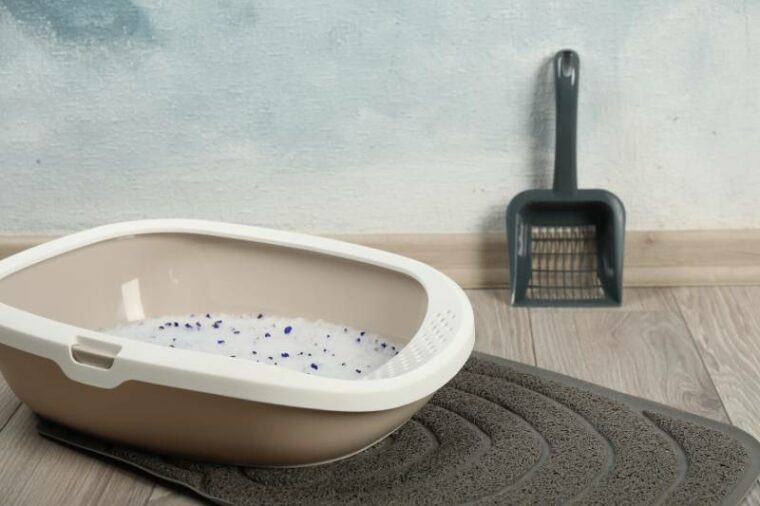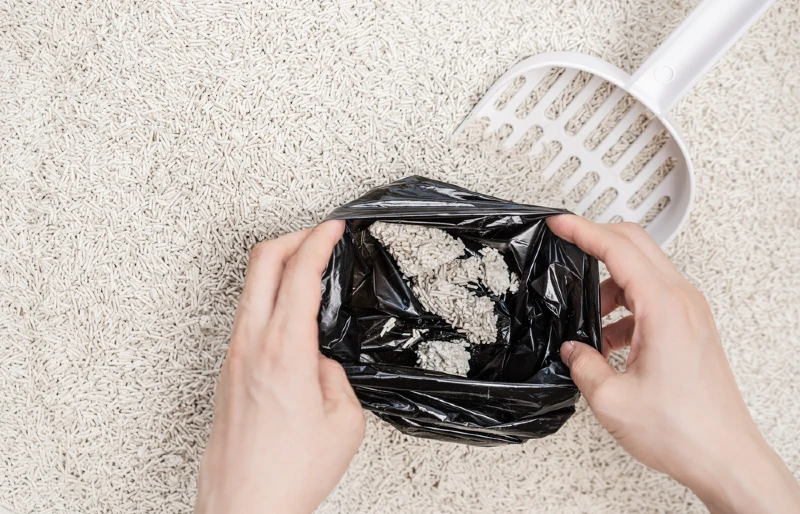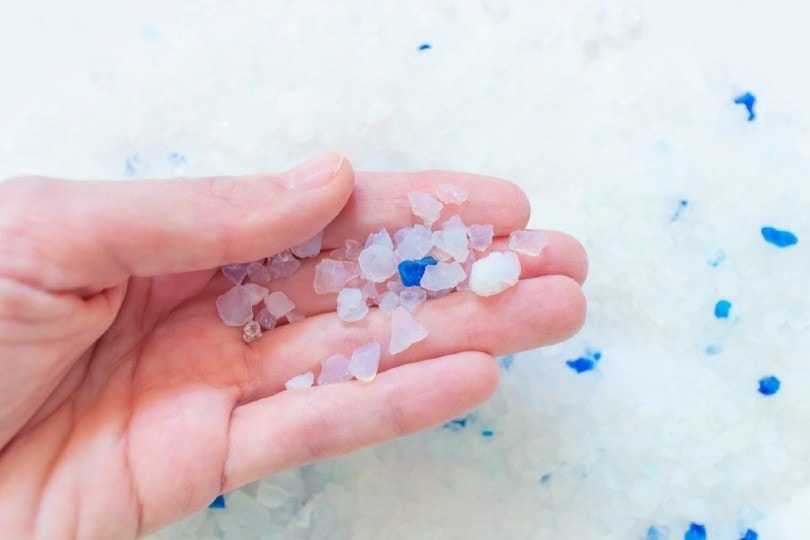
Click to Skip Ahead
If you’re interested in eco-friendly practices like composting, you may be going through that where you look at anything remotely natural around your home and ask, “Can I compost that?” Even if you’re just wondering about how to more effectively clean your litter box, the question still comes down to whether you can compost cat litter in the first place.
Yes, you can potentially compost cat litter, but only certain types, and with some safety considerations. Your regular old clay litter is not biodegradable and can’t be composted at all—we’re talking about the sandy stuff you’re likely familiar with. On the flip side, any litter made from natural materials like paper or wood is compostable and makes a fine addition to any compost bin. A few of the more unusual choices, such as shredded corn husks, moss, even shredded grass, are all compostable too.
If you’re interested in learning more about how to more efficiently deal with your cat’s litter, and maybe come out ahead with some nutrient-rich compost, you’re in the right place. Scroll down with us as we wade into a bit about the types of litter you can compost, the risks of composting cat litter, and more.
What Types of Cat Litter Can Be Composted?
Just about anything made from natural materials can be composted, but the most important thing is that the material is biodegradable. For example, paper rots very quickly and makes ideal composting material, but rock is ostensibly natural but doesn’t breakdown in your compost heap. Confused? Don’t be. There are a handful of common litter materials you can use without getting into the nitty gritty fine print.

What Is Regular Cat Litter Made Of?
We mentioned that your standard cat litter is made of clay, but there are other options available too. Litters have been formulated and tweaked for decades as pet companies search for the best ways to absorb and dispose of cat waste, and they’ve mostly stabilized for now. Let’s take a brief look at some ingredients you can expect to see in your average bag of cat litter. Bear in mind these are common ingredients, and they may not all be used in the same litter products together.
No matter what kind of litter you use, bad smells often linger. That's where an effective litter additive like Hepper's Advanced Bio-Enzyme Cat Litter Deodorizer can make a big difference.
This biodegradable deodorizer is fragrance-free and safe for all ages of cats and types of litter. It uses bio-enzymes to naturally get rid of odors and help your litter last longer.
At Pet Keen, we've admired Hepper for many years, and decided to take a controlling ownership interest so that we could benefit from the outstanding designs of this cool company!
Risks of Composting Cat Litter
Cat litter can carry a bevy of harmful bacteria that typically decompose, but the most concerning for humans is toxoplasmosis, which can still infect humans after natural litter has been composted. That means that composted cat litter should never be used on plants that will be fed to humans. In fact, compost containing soiled cat litter should not be used on any fruit or vegetable plants that will be fed to any animal species.
Instead, start a second compost bin you’ll use to feed your lawn, trees, and other ornamental plants around your home. Cat litter compost may not be great for the things we eat, but it’s fantastic for decorative plants. Be sure to keep your compost bins separated and to handle compost containing cat litter with great care because toxoplasmosis can still infect you after you think it decomposed.
Alternatively, cat litter compost can be heated to 150°F to kill all harmful pathogens that might linger in the mix. This technique is known as hot composting, where you add ingredients like meat or fruit rinds. These produce heat as they decay and can help your compost pile reach that temperature, but we recommend burying your cat litter in the existing pile to ensure it reaches the right temperature.

Why Is It Different To Normal Manure For Plants?
The standard type of manure used on gardens or included in compost comes from cattle or horses. These animals are herbivores, and as such, do not harbor potentially harmful pathogens such as Campylobacter or Salmonella. This means that the manure from these species can be used on plants that will be eaten by animals and humans, although sometimes it’s easier not to think about that when we’re next enjoying a salad!
Conclusion
Cat litter may not be the most fun subject to consider, but if you are owned by a cat, it is an important one. Rather than just throwing out soiled litter, it may be worth trying an organic, biodegradable litter that you can use to fertilize your trees, flowers, and lawn. Organic litter does tend to cost a bit more, but it’s worth it if you’re an avid gardener who could use some extra oomph in the springtime.
Featured Image Credit: New Africa, Shutterstock








